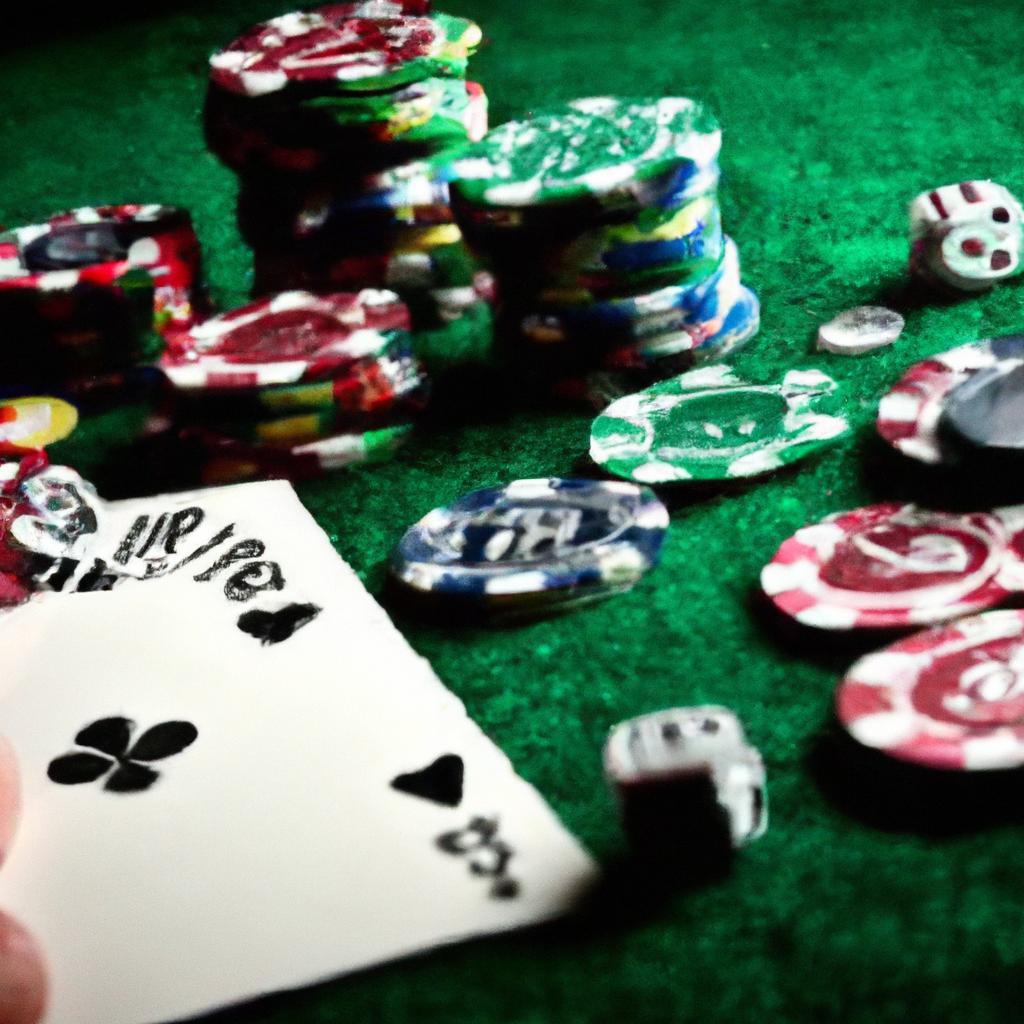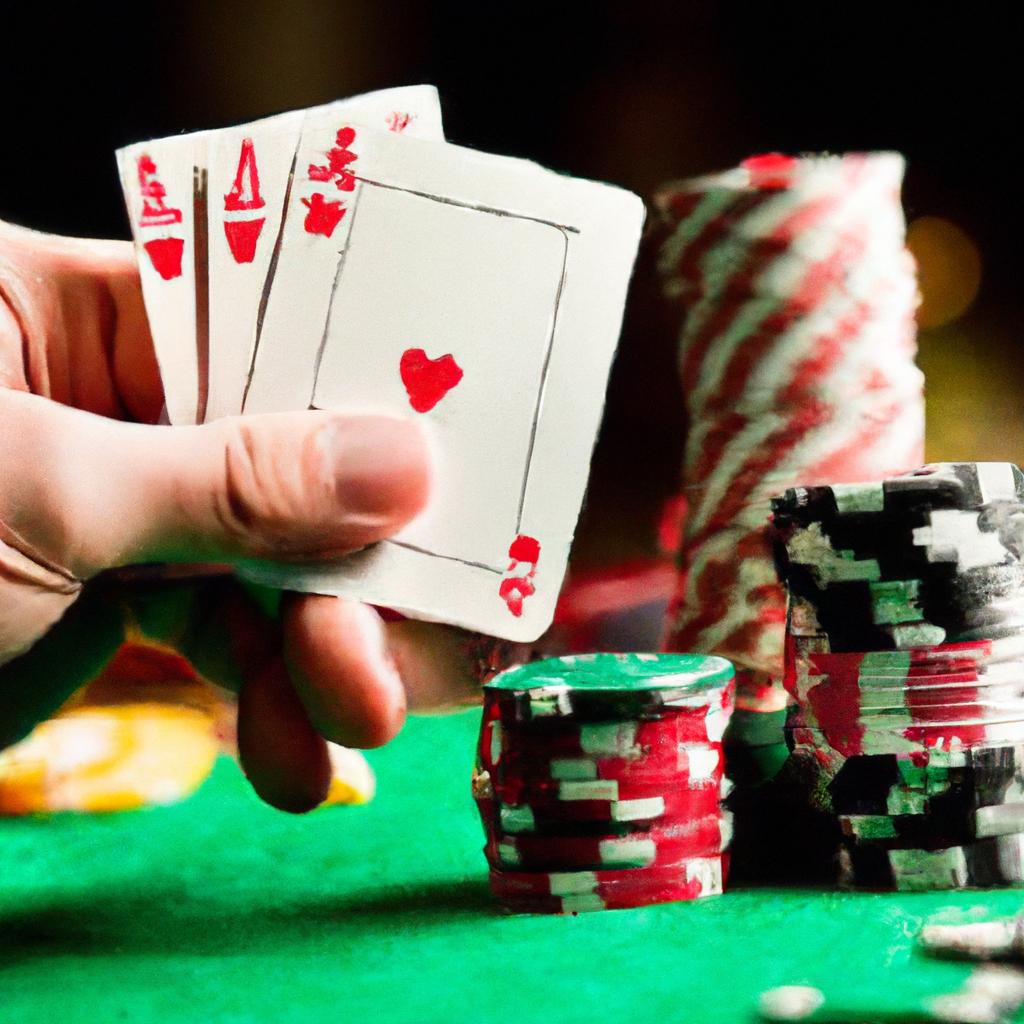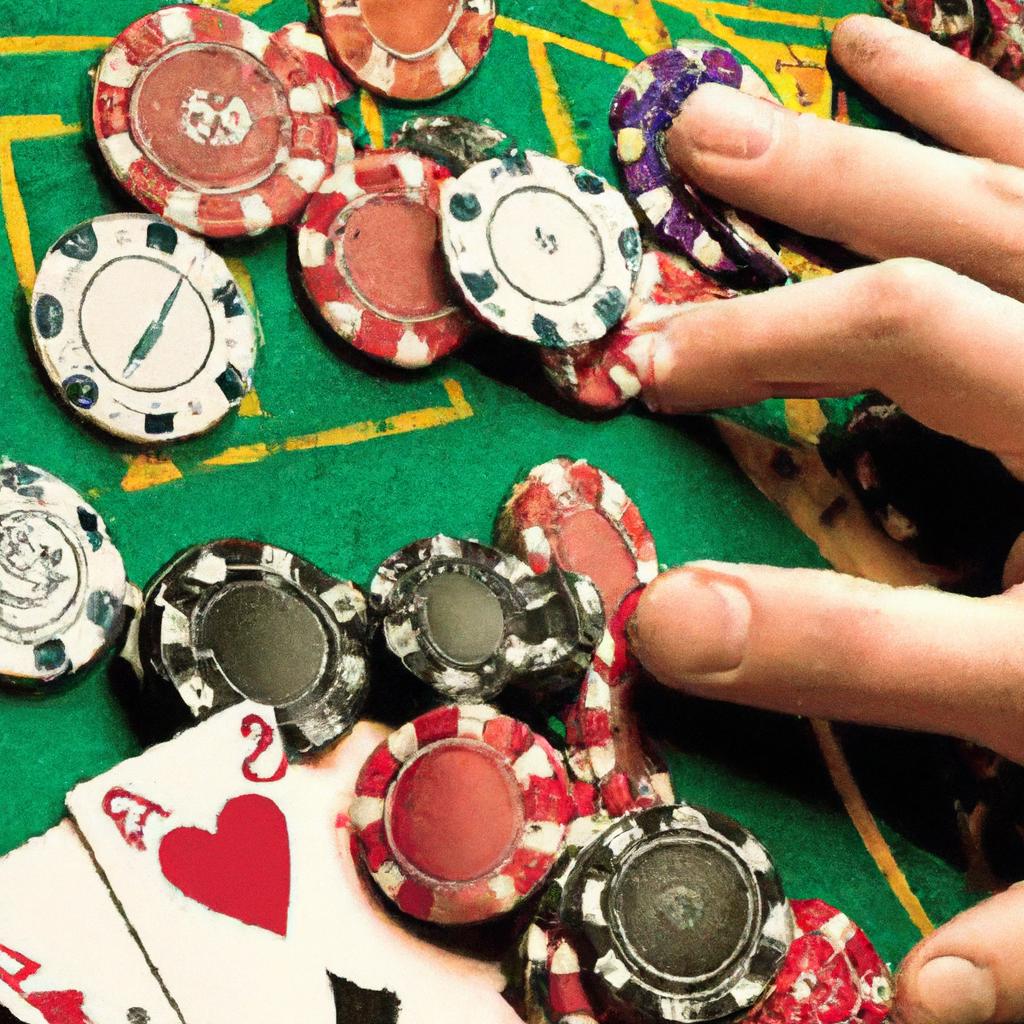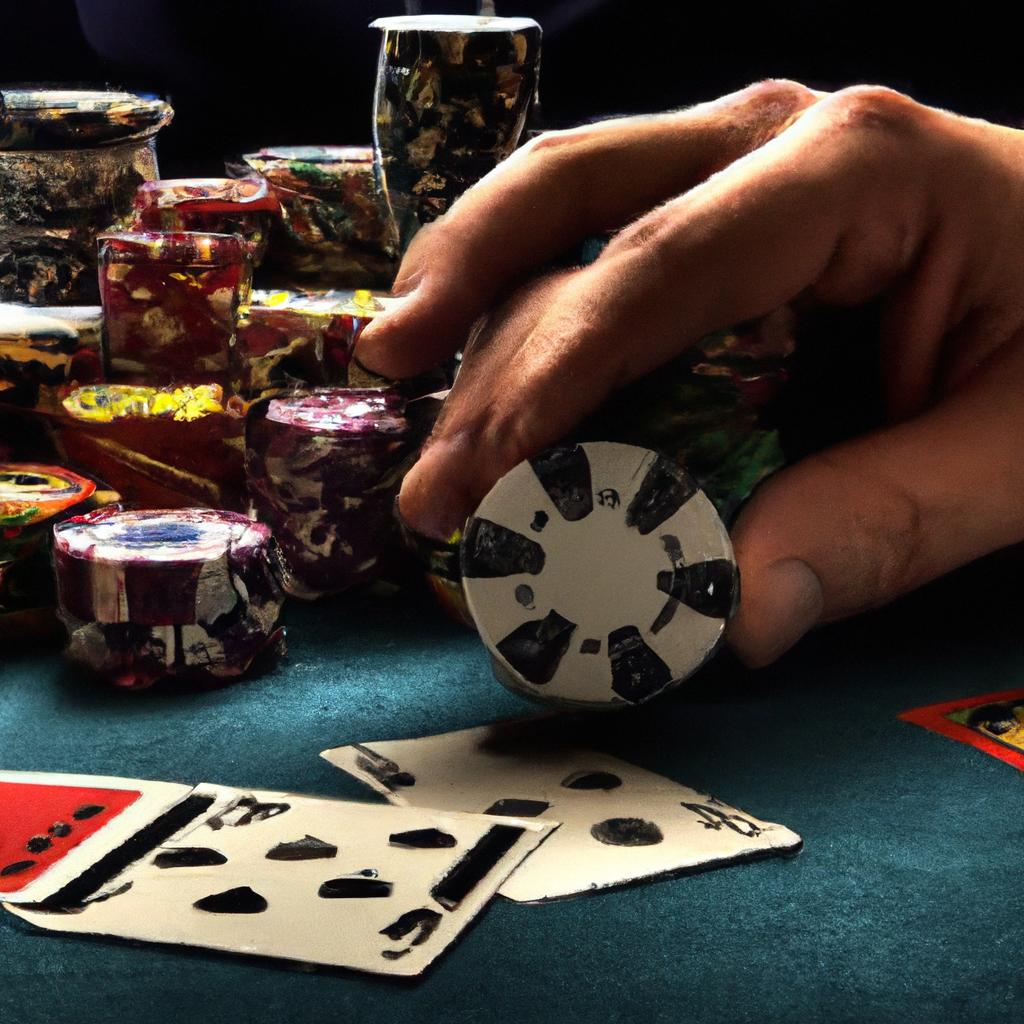Title: The Allure and the Abyss: Understanding Gambling Addiction
In a world illuminated by the glimmer of neon lights and the enticing sound of spinning wheels, gambling has captivated millions with its promise of fortune and thrill. For some, it’s a thrilling escape, a social pastime that adds a dash of excitement to everyday life. However, lurking beneath the surface of this exhilarating pastime is a darker reality that many may not see until it’s too late.
Gambling addiction, a condition that ensnares individuals in a web of compulsion and despair, transcends age, gender, and social status, leaving devastation in its wake. This article delves into the complexities of gambling addiction, exploring its psychological underpinnings, the profound impact on individuals and families, and the pathways to recovery. Join us as we navigate this multifaceted issue, shedding light on both the seductive allure of games of chance and the serious implications of losing control. Together, we can foster a deeper understanding of gambling addiction and the hope that lies in recovery.
Table of Contents
- Understanding the Psychological Underpinnings of Gambling Addiction
- Exploring the Impact on Relationships and Finances
- Effective Strategies for Recovery and Support Systems
- Preventive Measures: Cultivating Healthy Gambling Habits
- Q&A
- Concluding Remarks

Understanding the Psychological Underpinnings of Gambling Addiction
Gambling addiction is a complex behavioral condition that intertwines psychological factors with neurological responses, creating a cycle that can be incredibly challenging to break. Individuals suffering from this addiction often experience elevated levels of dopamine, a neurotransmitter closely associated with pleasure and reward. As they engage in gambling, their brains become conditioned to associate the act with excitement and euphoria. Over time, this can lead to a profound craving that compels the individual to chase the thrill of potentially winning, even in the face of mounting losses and destructive behaviors. Recognition of these patterns is crucial in understanding why individuals may continue to gamble despite negative consequences.
Various psychological theories have seeded our understanding of gambling addiction, including the cognitive-behavioral model, which emphasizes the role of distorted thinking and beliefs. Such cognitive distortions may involve:
- Illusion of Control: The belief that one can influence the outcome of a game.
- Availability Heuristic: Relying on the immediate examples that come to mind when evaluating probability.
- Gambler’s Fallacy: The assumption that past events can influence future outcomes in random games.
Recognizing these cognitive traps is essential in developing effective interventions. Moreover, social factors such as peer behavior and cultural acceptance of gambling further complicate the landscape, emphasizing the need for a multidimensional approach in addressing gambling addiction. For further insights and tools addressing this issue, consider exploring resources available at BetReward.

Exploring the Impact on Relationships and Finances
Gambling addiction often creates a domino effect that extends far beyond the individual, deeply affecting relationships with family, friends, and partners. Trust becomes eroded as the individual may resort to deception, hiding their gambling habits, or lying about finances. As a result, loved ones may feel betrayed, leading to conflicts and emotional distress. This strain can manifest as:
- Increased tension at home
- Isolation as gamblers withdraw from social interactions
- Emotional trauma for partners and children
- Potential breakdown of relationships
Financial repercussions are equally significant, creating a suffocating cycle of debt and desperation. Gambling can lead to severe liquidity issues, often forcing individuals to exhaust their savings or incur high-interest loans in pursuit of the next win. The ensuing financial strain can create a host of problems, including:
| Financial Consequence | Description |
|---|---|
| Mounting Debt | Accumulation of unpaid loans and credit cards |
| Bankruptcy | Last-resort option for those unable to repay debts |
| Loss of Assets | Risk of losing homes, cars, and other possessions |
These financial challenges can create a vicious cycle that only exacerbates feelings of guilt and shame, perpetuating the addiction and further complicating recovery efforts. For more comprehensive resources on managing these challenges, visit BetReward.

Effective Strategies for Recovery and Support Systems
Recovery from gambling addiction is a multifaceted journey that requires a blend of personal commitment and external support. Engagement in therapeutic practices such as Cognitive Behavioral Therapy (CBT) can significantly aid individuals in reshaping their thoughts about gambling. Furthermore, establishing a robust support system is vital. This can include connecting with support groups where individuals can share their experiences and learn from one another. The following strategies may enhance recovery:
- Develop a personalized recovery plan that includes short and long-term goals.
- Incorporate mindfulness practices to help manage urges and reduce stress.
- Educate yourself about the nature of addiction through workshops or reading materials.
- Set up financial safeguards, such as limiting access to funds or enlisting a trusted person to oversee finances.
Collaboration with professionals in the field can further boost recovery efforts. Participating in treatment programs and counseling not only provides accountability but also offers practical tools to handle triggers and cravings effectively. Family involvement can also be instrumental, as it creates a network of caring support that reminds individuals of the consequences of gambling. Below is a simple representation of how various support systems can work together:
| Support System | Role in Recovery |
|---|---|
| Support Groups | Sharing experiences and encouragement. |
| Therapists | Providing coping strategies and behavioral therapy. |
| Family & Friends | Offering emotional support and accountability. |
For more information and support resources, visit BetReward.

Preventive Measures: Cultivating Healthy Gambling Habits
Establishing a healthy relationship with gambling begins with self-awareness and discipline. By recognizing the signs of potential problems early on, individuals can take proactive steps to mitigate risks. Here are some practices to foster responsible gambling habits:
- Set Limits: Determine the amount of time and money you can afford to spend and stick to it.
- Know Your Games: Familiarize yourself with the odds and rules of the games you play to make informed decisions.
- Keep Emotions in Check: Avoid gambling when feeling stressed or overwhelmed, as this can lead to poor decision-making.
- Engage in Other Activities: Diversify your interests to ensure gambling is just one of many pastimes.
In addition to personal practices, seeking support from credible organizations can provide essential guidance and resources. Many communities offer programs and hotlines for those needing advice or assistance. Consider the following options:
| Support Resource | Description |
|---|---|
| Gamblers Anonymous | A fellowship of individuals who share their experiences and support each other in overcoming gambling addiction. |
| National Council on Problem Gambling | Offers assistance through resources and referrals for individuals and families affected by gambling disorder. |
| Online Resources | Websites like Bet Reward provide insights and tools for responsible gambling. |
Q&A
Q&A on Gambling Addiction
Q1: What is gambling addiction?
A1: Gambling addiction, also known as compulsive gambling or pathological gambling, is a behavioral disorder characterized by an uncontrollable urge to gamble despite the harmful consequences. It often leads to various negative impacts on an individual’s life, including financial problems, strained relationships, and deteriorating mental health.
Q2: How can someone identify if they have a gambling problem?
A2: Identifying a gambling problem can be nuanced, but some key signs include:
- Constant preoccupation with gambling
- Increasing amount of time and money spent on gambling
- Lying about gambling habits or hiding betting activities
- Feeling restless or irritable when trying to cut back
- Chasing losses by gambling more to win back lost money
If these behaviors resonate, it may be time to seek professional help.
Q3: What causes gambling addiction?
پ
A3: Gambling addiction can arise from a blend of factors, including genetic predisposition, environmental influences, and psychological conditions. Some individuals may have a temperament that makes them more susceptible to risk-taking, while stressors such as financial instability or major life changes can trigger compulsive gambling behaviors.
Q4: Are there particular demographics more likely to develop gambling addiction?
A4: Although gambling addiction can affect anyone, certain groups may be at higher risk, including young adults, men, and individuals with a family history of addiction. Socioeconomic factors and mental health issues, such as anxiety or depression, can also contribute to a higher likelihood of developing this condition.
Q5: What are the consequences of gambling addiction?
A5: The consequences of gambling addiction can be severe and multifaceted. Financial strain often leads to debt and bankruptcy, while personal relationships frequently suffer from dishonesty and emotional distress. Furthermore, individuals may face legal issues due to their gambling activities, and mental health can decline, with increased rates of anxiety, depression, and suicidal thoughts.
Q6: How can gambling addiction be treated?
A6: Treatment for gambling addiction typically includes therapy—particularly cognitive-behavioral therapy (CBT)—which helps individuals recognize and change unhealthy thought patterns. Support groups such as Gamblers Anonymous can also provide community support. In some cases, medication may be prescribed to address associated mental health issues. Early intervention is often crucial for effective recovery.
Q7: Is recovery from gambling addiction possible?
A7: Yes, recovery from gambling addiction is not only possible but achievable. Many individuals have successfully managed their compulsive behaviors through treatment and support. However, recovery is an ongoing process that requires commitment, self-awareness, and a strong support network.
Q8: How can friends and family provide support for someone with a gambling addiction?
A8: Friends and family can play a critical role in supporting someone battling gambling addiction. This involves open and non-judgmental communication, encouraging the person to seek professional help, and participating in support groups together. It’s also vital to set boundaries to protect oneself from the negative impacts of the addict’s behavior while remaining compassionate and understanding.
Q9: What preventive measures can be taken to avoid gambling addiction?
A9: Preventive measures include setting strict limits on gambling activities, fostering awareness about the risks associated with gambling, and promoting healthy coping strategies for stress. Engaging in alternative activities and discussing the potential impact of gambling—especially with young individuals—can also be beneficial in reducing the risk of developing an addiction.
Q10: Where can someone seek help for gambling addiction?
A10: Numerous resources are available for those seeking help with gambling addiction, including national helplines, local support groups, and mental health professionals specializing in addiction. Organizations such as the National Council on Problem Gambling (NCPG) provide valuable information and connections to local resources, ensuring individuals find the support they need on their path to recovery.
Concluding Remarks
In the complex tapestry of modern life, gambling addiction stands as a stark reminder of the delicate balance between risk and reward. As we navigate the shifting sands of chance and fortune, it becomes imperative to recognize the signs of this pervasive issue and to approach it with compassion and understanding. Awareness is the first step toward healing, not just for those ensnared by addiction, but for their loved ones as well. By fostering open conversations and supporting meaningful resources,
we can cultivate an environment that prioritizes recovery and resilience. Ultimately, the journey towards awareness and recovery is not a solitary one; it calls for a collective commitment to compassion, helping to illuminate a path toward a future free from the burdens of dependency. As we close this chapter on gambling addiction, let us remember that every end can also be a new beginning, filled with the promise of hope and healing.